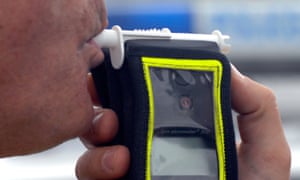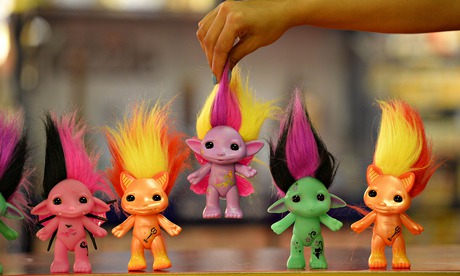
In tests by doctors, the woman blew well over the legal limit even though she had not had any alcohol, her lawyer said. Photograph: Jack Sullivan / Alamy/Alamy
Associated Press in The Guardian
Drunken-driving charges against a woman in upstate New York have been dismissed based on an unusual defence: her body is a brewery.
The woman was arrested while driving with a blood-alcohol level more than four times the legal limit. She then discovered she has a rare condition called “auto-brewery syndrome”, in which her digestive system converts ordinary food into alcohol, her lawyer Joseph Marusak said.
Associated Press in The Guardian
Drunken-driving charges against a woman in upstate New York have been dismissed based on an unusual defence: her body is a brewery.
The woman was arrested while driving with a blood-alcohol level more than four times the legal limit. She then discovered she has a rare condition called “auto-brewery syndrome”, in which her digestive system converts ordinary food into alcohol, her lawyer Joseph Marusak said.
A town judge in the Buffalo suburb of Hamburg dismissed the charges after Marusak presented research by a doctor showing the woman had the previously undiagnosed condition in which high levels of yeast in her intestines fermented high-carbohydrate foods into alcohol.
The rare condition, also known as gut fermentation syndrome, was first documented in the 1970s in Japan, and both medical and legal experts in the US say it is being raised more frequently in drunken-driving cases as it is becomes more known.
“At first glance, it seems like a get-out-of-jail-free card,” said Jonathan Turley, a law professor at George Washington University. “But it’s not that easy. Courts tend to be sceptical of such claims. You have to be able to document the syndrome through recognised testing.”
The condition was first documented in the US by Barbara Cordell of Panola College in Texas, who published a case study in 2013 of a 61-year-old man who had been experiencing episodes of debilitating drunkenness without drinking liquor.
Marusak contacted Cordell for help with his client who insisted she had not had more than three drinks in the six hours before she was pulled over for erratic driving 11 October 2014. The woman was charged with driving while intoxicated when a breath test showed her blood-alcohol content to be 0.33%.
Cordell referred Marusak to Dr Anup Kanodia of Columbus, Ohio, who eventually diagnosed the woman with auto-brewery syndrome and prescribed a low-carbohydrate diet that brought the situation under control. Her case was dismissed on 9 December, leaving her free to drive without restrictions.
During the long wait for an appointment, Marusak arranged to have two nurses and a physician’s assistant monitor his client for a day to document she drank no alcohol, and to take several blood samples for testing.
“At the end of the day, she had a blood-alcohol content of 0.36% without drinking any alcoholic beverages,” Marusak said. He said the woman, who cannot be named for reasons of medical confidentiality, also bought a breath test kit and blew into it every night for 18 days, registering around 0.20% every time.
The legal threshold for drunkenness in New York is 0.08%.
While people in cases described by Cordell sought help because they felt drunk and did not know why, Marusak said that was not true of his client. “She had no idea she had this condition. Never felt tipsy. Nothing,” he said.

